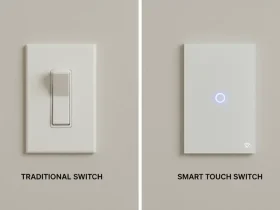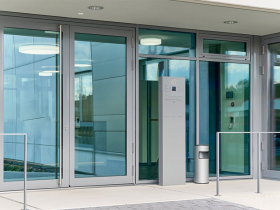When it comes to maintaining the functionality and aesthetics of your home, the garage door often plays a crucial role. As a significant component of your property’s exterior, a well-functioning garage door enhances curb appeal, security, and convenience. However, over time, wear and tear can necessitate either a repair or an upgrade. Deciding between garage repair and new garage doors can be challenging. This article aims to guide homeowners through the decision-making process, providing insights into when to opt for repair and when to consider an upgrade.
Garage Repair: Assessing the Need
1. Evaluate the Current Condition
The first step in deciding whether to repair your garage door is to assess its current condition. Common issues that warrant repair include:
- Mechanical Failures: Problems with the garage door opener, broken springs, or faulty sensors can lead to operational difficulties.
- Minor Damage: Dents, scratches, or misaligned tracks that do not compromise the door’s overall function may be repairable.
- Noise Issues: Squeaking or grinding noises often indicate worn-out components that may be addressed through repair.
If your garage door is relatively new and the issues are limited to mechanical failures or minor damage, a repair is usually a cost-effective solution. Professional garage repair services can often restore the door to optimal function without the need for a full replacement.
2. Consider Repair Costs
Repairing a garage door generally costs less than installing a new one. However, it’s essential to weigh the cost of repairs against the potential benefits. For example, if repair costs approach or exceed the cost of a new door, it may be more economical in the long run to invest in a replacement. Additionally, frequent repairs can add up, reducing the overall value of choosing repair over replacement.
3. Longevity and Reliability
The age of your garage door plays a significant role in the decision-making process. Older doors, especially those nearing the end of their lifespan, may experience recurring issues. In such cases, opting for a new garage door can provide greater reliability and reduce the frequency of future repairs.
New Garage Doors: Weighing the Benefits
1. Enhancing Curb Appeal
One of the primary advantages of installing new garage doors is the opportunity to enhance your home’s curb appeal. Modern garage doors come in various styles, colors, and materials, allowing homeowners to choose an option that complements their property’s architecture. Upgrading to a stylish and contemporary garage door can significantly boost your home’s aesthetic appeal.
2. Improved Energy Efficiency
New garage doors often feature advanced insulation technologies that can enhance your home’s energy efficiency. Insulated garage doors help regulate temperature and reduce energy consumption, which can lead to lower heating and cooling costs. If your current garage door lacks insulation or is poorly insulated, upgrading to a new model can provide long-term savings on energy bills.
3. Advanced Features and Technology
Modern garage doors come equipped with various advanced features, such as smart technology integration. These features include remote access, automated openers, and enhanced security systems. Upgrading to a new garage door with these innovations can offer added convenience and improved security for your home.
4. Reduced Maintenance Needs
New garage doors typically require less maintenance compared to older models. Advanced materials and construction techniques result in doors that are more resistant to weather-related damage, corrosion, and warping. Investing in a new garage door can reduce the frequency and cost of maintenance, providing a more hassle-free solution in the long run.
Making the Decision
1. Budget Considerations
When deciding between repair and replacement, your budget is a crucial factor. Compare the costs of repairing your existing door with the expenses associated with installing a new one. Factor in both immediate costs and long-term benefits. In some cases, a repair may be sufficient for short-term needs, but a replacement could offer better value over time.
2. Frequency of Issues
Consider the frequency of issues with your current garage door. If you have encountered multiple problems in a short period, it may be a sign that a replacement is a more prudent investment. New garage doors offer enhanced reliability and fewer issues, providing peace of mind and reducing the likelihood of future problems.
3. Long-Term Goals
Reflect on your long-term goals for your home. If you plan to sell or renovate in the near future, investing in new garage doors may increase your property’s value and appeal. Conversely, if you are looking for a temporary solution, repairing your current door might be more appropriate.
Conclusion
Deciding whether to repair or upgrade your garage door requires careful consideration of several factors, including the door’s condition, repair costs, and long-term benefits. By evaluating these aspects, homeowners can make an informed decision that aligns with their budget, needs, and goals. Whether opting for a repair to address specific issues or investing in new garage doors to enhance aesthetics and functionality, ensuring the best choice for your garage door will contribute to the overall comfort and value of your home.











